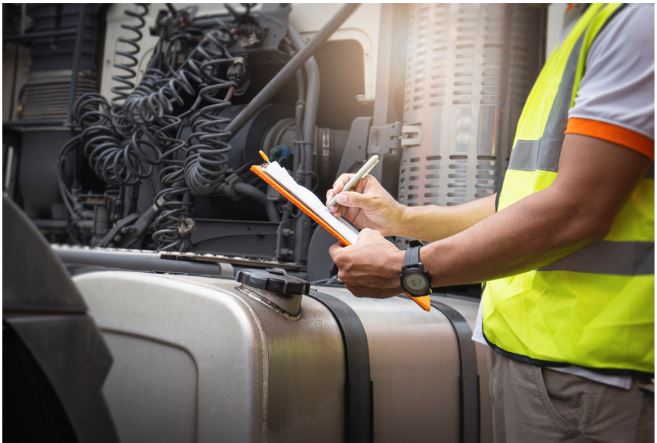
What Drivers Need to Know About the DVIR

What Drivers Need to Know About the DVIR
The Driver Vehicle Inspection Report (DVIR) is a legally mandated review of the components and systems of your truck and trailer. Simply put, neglecting to complete this task can result in fines and penalties for both the driver and the company, so don’t cut corners.
I remember learning about the DVIR and thinking I was already in over my head. I wasn’t particularly mechanically inclined. I didn’t grow up as a car guy. Who was I to begin assessing a tractor trailer for road worthiness?
It came together after many sessions of repeated practice and review. So, if you’re new to the trucking industry, fear not! It will come together.
Let’s dig in and discover what’s involved in this vital piece of truck and driver safety.
Your Responsibilities
The steps of a DVIR are clearly outlined for drivers and each component is required to ensure successful completion.
● Complete a comprehensive circle check
● Identify any issues or defects
● Advise company of any issues or defects
● Complete the required DVIR form including:
○ The date
○ License plate number for truck and trailer
○ Unit number for truck and trailer
○ The (digital) signature of the driver who prepares the DVIR
● If using a paper copy, keep your own copy for records
● If using electronic logs, be sure to download your copy on a regular basis
Systems and Components
There are so many systems and components to consider in your inspection that it can be overwhelming. Breaking it down into sections of the truck or general systems will help relieve some of the anxiety that comes with the inspection.
● Engine fluids
● Suspension, springs
● Steering mechanism
● Power unit and trailer
● Brakes and air system
● Wheels, tires, and rims
● Environmental controls
● Belts, hoses, and wiring
● Lights, reflectors, and reflective tape
● Coupling equipment and fifth wheels
● Mirrors, windows, windshield wipers and washer fluid
● Safety and emergency equipment, including fire extinguishers and first-aid kits
Consequences
Many drivers have a tendency to rush their inspections citing their familiarity with their truck., or skip them completely and just check off the needed data. But the consequences can be serious and hit where it hurts – the wallet.
The Federal Motor Carrier Safety Association regulations state:
● A maximum civil penalty of $1,270 a day for failing to complete a DVIR
● A maximum civil penalty of $12,695 for knowingly falsifying, destroying, or changing DVIR records
● A civil penalty not exceeding $15,419 for each non-recordkeeping violation
In addition to the potential penalties, a DOT officer can place your vehicle out of service in the event there are significant defects that were not detected and reported by the driver.
The responsibility for safety rests with the driver. Be sure to follow due diligence and keep your truck, trailer, and those around you safe, making sure you make it to your next destination.




